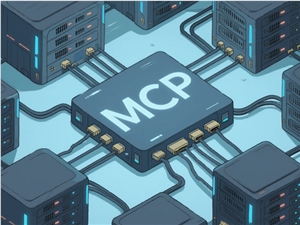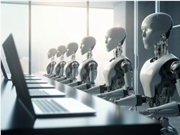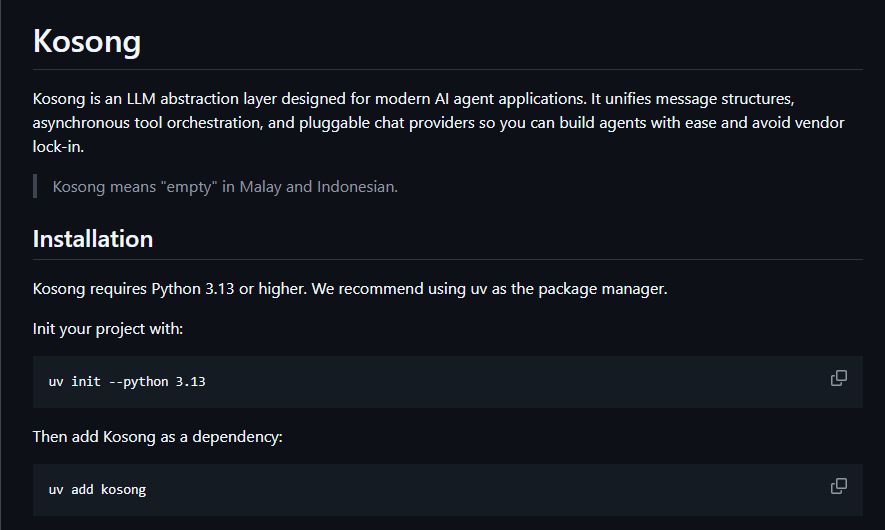At the annual Build Developer Conference held this morning, Microsoft officially announced a comprehensive AI agent strategy aimed at positioning itself as the core of an emerging "open agent network." The tech giant unveiled over 50 artificial intelligence tools and platforms across its entire product line, including GitHub, Azure, Windows, and Microsoft 365. The core objective is to empower developers in building intelligent systems capable of making autonomous decisions and completing tasks with minimal human intervention.
In a blog post released in sync with the Build conference, Microsoft's Chief Communications Officer, Frank Shaw, stated: "We have entered the era of AI agents. Thanks to groundbreaking advancements in reasoning and memory, AI models are now more powerful and efficient, and we are witnessing how AI systems can help us solve problems in entirely new ways."

AI Agents Empower Themselves, Reshaping Software Development Models
The concept of an "agent network" goes far beyond current AI assistants. Unlike existing AI tools that primarily respond to human commands, agents possess the ability to initiate tasks autonomously, make independent decisions, collaborate with other AI systems, and complete complex workflows with minimal human supervision. Microsoft's Chief Technology Officer, Kevin Scott, emphasized that this shift will fundamentally change the way people interact with technology: "Reasoning capabilities will continue to improve. We will witness its tremendous progress. But for agents to take on more complex work, some new things must emerge quickly." He believes that the key missing element is "memory."
To address this issue, Microsoft introduced several memory-related technologies, including structured RAG (Retrieval-Augmented Generation), to enhance the accuracy of AI systems recalling information from vast amounts of data. Microsoft Corporate Vice President and Technical Fellow Steven Bathiche explained that future agents will have contextual awareness, able to "understand you well, incorporate where you are and what you want to do into the context, and ultimately understand you so that you can click fewer buttons by the end of the day." This transition from purely reactive AI to systems with persistent memory marks a critical step in the agent revolution.
GitHub Evolves: From Code Completion to Autonomous Developer Experience
Microsoft positioned its popular developer platform, GitHub, at the forefront of its agent strategy, introducing the GitHub Copilot coding agent. This upgraded tool not only suggests code snippets but also autonomously solves programming tasks, functioning as an intelligent member of software development teams by autonomously refactoring code, improving test coverage, fixing defects, and even implementing new features. For complex tasks, GitHub Copilot can also collaborate with other agents throughout the software development lifecycle.
More noteworthy is that Microsoft is open-sourcing GitHub Copilot Chat within Visual Studio Code, inviting the developer community to participate in its development. This demonstrates its dual strategy of leading AI innovation and embracing open-source principles.
Multi-Agent Collaboration, Driving Complex Business Process Automation
For enterprise applications, Microsoft announced significant updates to Azure AI Foundry, a platform for developing and managing AI applications and agents. Microsoft's AI Agent Vice President, Ray Smith, emphasized the importance of multi-agent systems and explained the advantages of breaking down tasks among multiple agents: "It's very difficult to create a reliable process and put it all into one agent. Breaking it down into parts improves maintainability and makes building solutions easier, while significantly enhancing reliability."
Azure AI Foundry agent services, now fully available, support multi-agent workflows and open protocols like Agent2Agent (A2A) and Model Context Protocol (MCP). These enable enterprises to build enterprise-grade AI agents capable of coordinating multiple specialized agents to handle complex tasks.
Cloud-Edge Collaboration, Boosting Local Device AI Capabilities
While emphasizing cloud-based AI, Microsoft is also heavily promoting local device AI, launching an upgraded version of Windows AI Foundry (formerly Windows Copilot Runtime). This provides a unified platform for local AI development on Windows, including Windows ML, built-in AI inference runtime, and model preparation and optimization tools. The aim is to reduce internet data usage, protect user privacy, and lower costs.
Strengthening Security Governance, Addressing Challenges in Enterprise AI Applications
As agents become more widespread in enterprises, Microsoft introduced the Microsoft Entra Agent ID preview, automatically assigning unique identities to agents created in Microsoft Copilot Studio or Azure AI Foundry. This helps businesses manage agents securely from the start, preventing "agent sprawl." Additionally, Microsoft integrated Purview data security and compliance controls into its AI platform to ensure enterprise-grade security and compliance for AI solutions.
Innovative Research Platforms, Accelerating R&D Processes
One of the most ambitious AI agent applications at the Build conference was Microsoft Discovery, a platform designed to accelerate scientific research and development in areas such as pharmaceuticals and materials science. Microsoft's Vice President of Strategic Missions and Technology, Jason Zander, demonstrated how the platform discovered non-PFAS immersion coolants for data centers in just 200 hours, a process that traditionally takes years. This highlights the immense potential of AI agents in significantly shortening R&D cycles.
Embracing Open Standards, Building Cross-Platform Agent Ecosystems
The core of Microsoft's vision is advancing open standards to enable agent interoperability across platforms and services, with the Model Context Protocol (MCP) playing a crucial role. Microsoft announced its membership in the MCP Steering Committee and contributed new licensing specifications and MCP server registration service designs to its ecosystem. It also launched a new open project, NLWeb, aimed at providing users with conversational interfaces using their chosen models and data.
Microsoft Strategy, Leading the Next Computing Paradigm
The wide-ranging and in-depth announcements made by Microsoft at Build 2025 clearly demonstrate its firm commitment to viewing AI agents as the next major computing paradigm. By integrating cloud and edge AI, open standards with proprietary technologies, developer tools with commercial applications, Microsoft is positioning itself as a core participant in the emerging agent ecosystem, signaling profound changes in enterprises with smarter and more autonomous workflows and business operations.










